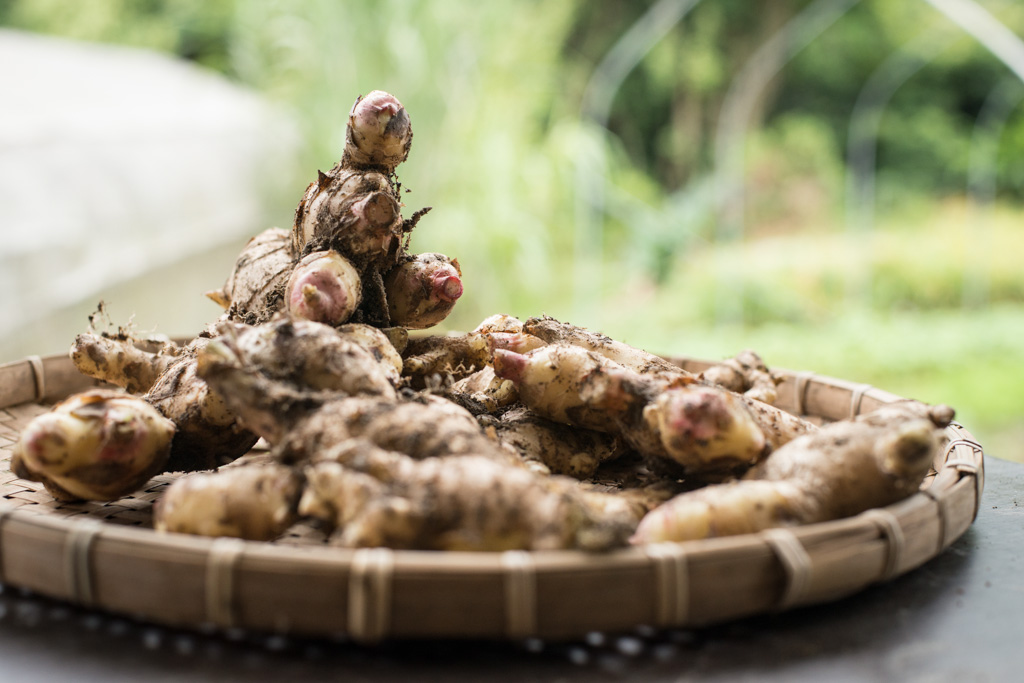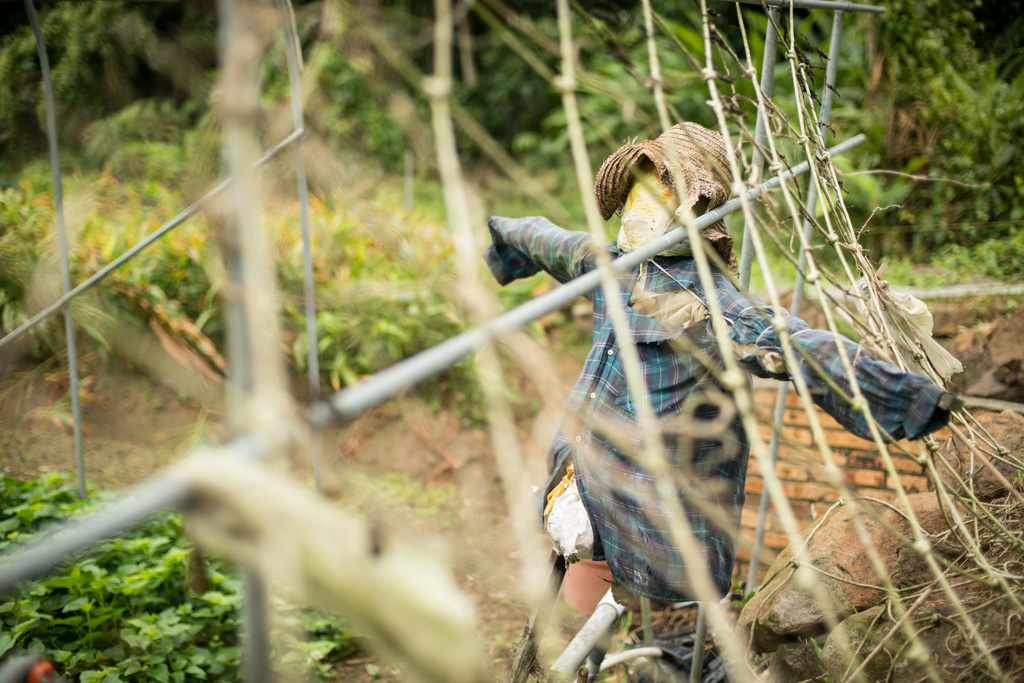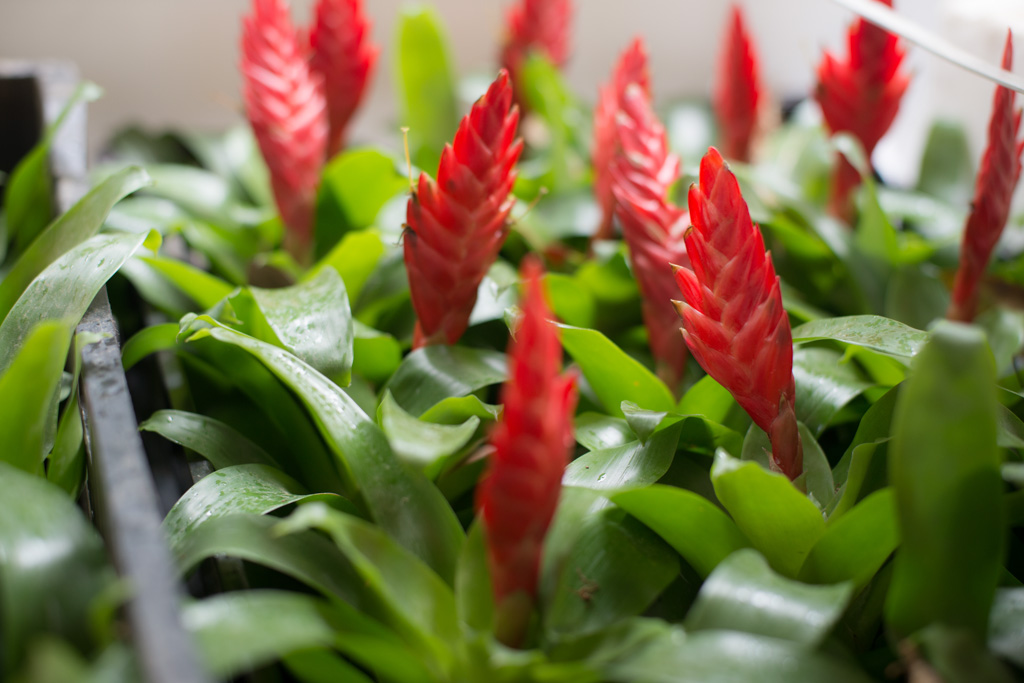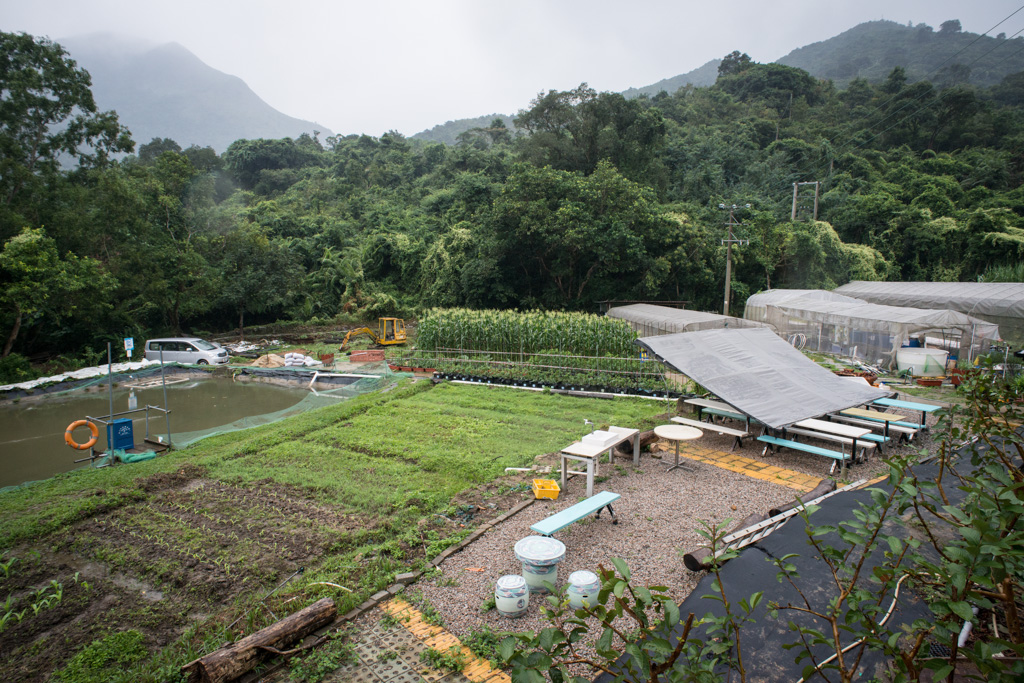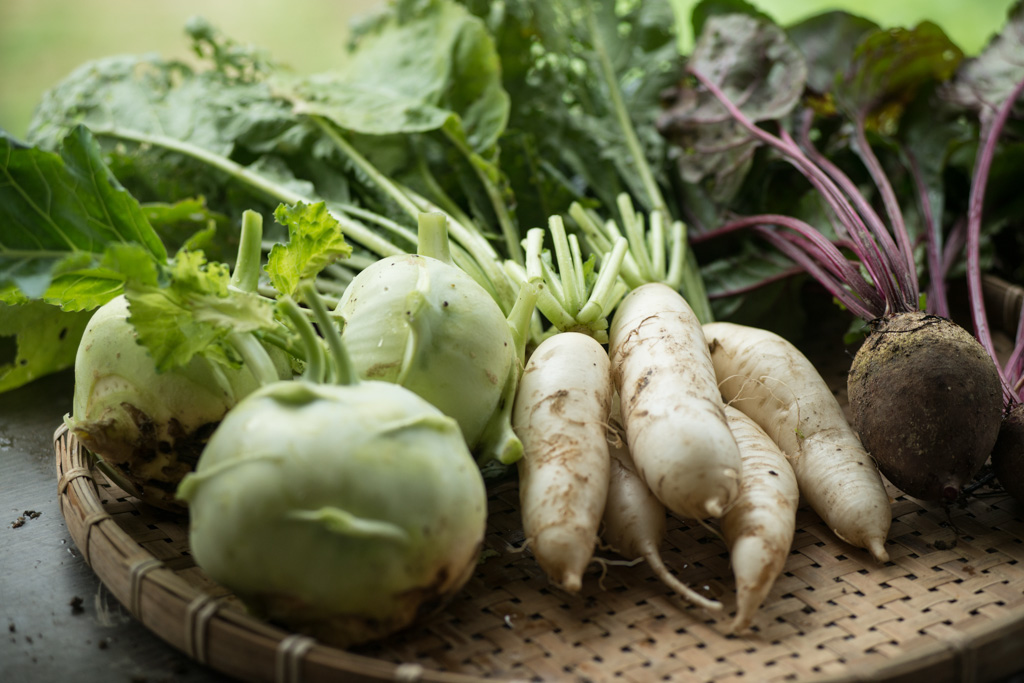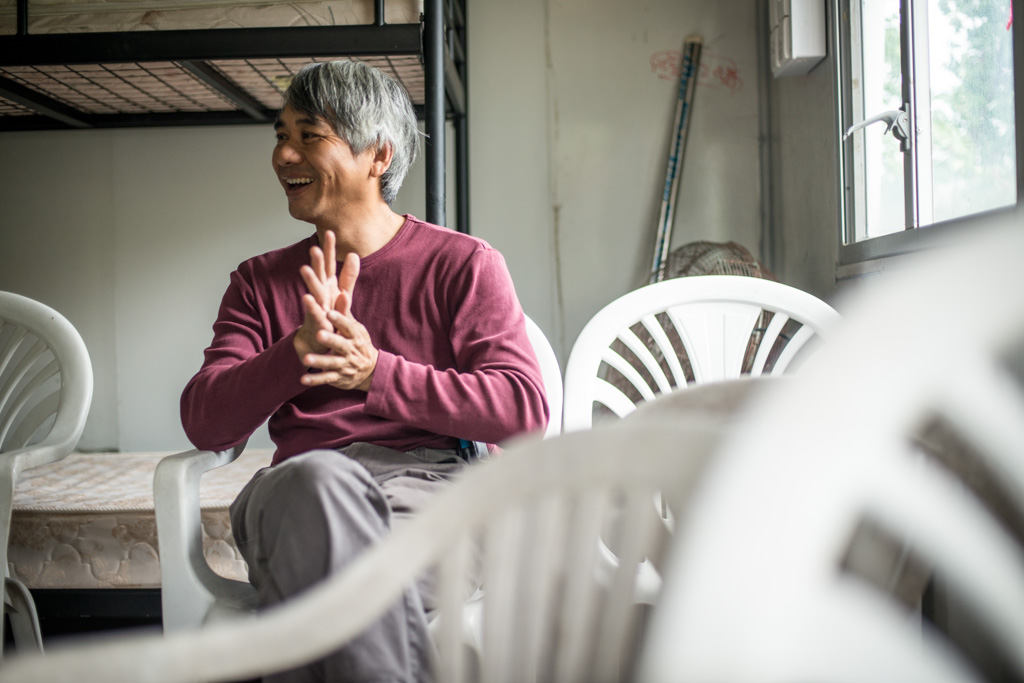There are a total of 365 tiles. Ah To and Teresa paved them carefully, one by one, on the trail they have opened up on the slope sheltering their farm. It took the couple three months to lay down all the tiles for the footpath that now connects their farm to the main road.
The couple took up farming six years ago, and they have built up their farm completely from scratch. They have turned previously unproductive patches of soil into farmable land, built an irrigation system around a nearby freshwater stream, and learnt how to grow vegetables well. Moreover, they’ve had to learn how to sell their produce. “It was my husband’s dream to run a farm when he retires. For us, retirement means a relaxed life and contentment,” said Teresa.
Teresa Chan Shuk-chun and her husband Augustine To Yat-man, Ah To, run an organic farm on the fringes of Hok Tau Country Park in Fanling. The couple used to own a garment business, but Ah To decided long ago that he would find a job that allowed him to serve the community full-time when he hit 45, and that he would retire and open a farm when he reached 60. However, the year when he turned turned 45, he realised he could combine the two dreams by running an organic farm, since organic farming is as much about growing healthy food as it is about conserving nature. With that realisation, he left his garment business to his sisters, and retired 15 years earlier than he had planned.
The farmer enjoys how life is treating him at present. He believes there is a time for everything. Although his farm is on rented land, and the city is obsessed with pouring concrete over nature, Ah To is not worried he may have to start from scratch one day when the farm comes to an end for reasons he can’t control. “The most important thing is I’m having a good time now and when I look back, I can say that I’ve had great fun farming for others. I’m not worried about the future. Why worry? I prefer spending time enjoying myself than worrying,” said Ah To.
It was my first visit to their farm but we were not total strangers. Ah To is one of the main suppliers to Green Shop in Wan Chai where I go for my groceries. The shop arranges for consumers to visit their suppliers, including Ah To’s farm, and the couple also receives city-dwellers who visit and shop directly from them regularly.
I buy my groceries at Green Shop because I want to support local farmers. Thanks to my work, I have got to know a number of them. It is likely that I was the first newspaper journalist who started writing about city professionals or urban dwellers who gave up their steady jobs and turned to farming in rural Hong Kong. That was more than three years ago, when turning to farming as a job was still an alien concept in this brash city of international finance. This group of new farmers comprised students, intellectuals, retirees and professionals. Many have found their decision to turn to full-time farming “mad”.
Mad, perhaps. But they also are admirable. These individuals have forsaken the comforts of city life for an unfamiliar and risky enterprise that provides no stable and often limited financial returns. They’ve made such a gamble because they cannot accept the continued exploitation of nature. Ah To, for example, hopes that consumers will understand the extra price they pay for organic food is about paying organic farmers to conserve nature.
“We take from nature but what have we got left for it? Instead, we’re polluting nature. Why is food so cheap? It is because the environment is subsidising our irresponsible farming and lifestyles,” said Ah To.
As I return to writing on urban farming, I wonder what the farmers think about their customers and how that shapes their approach to farming. I turned to Ah To for an answer.
“Food growing is a craft. It is like making a gift for your beloved by hand. When I know who is eating the food I grow, the sense of responsibility is completely different. If I don’t know them and I don’t have their welfare in my heart, working in a farm would just be the same as working in a factory.”
Q: What do you like the most about Hong Kong?
A: I can be myself.
Q: What do you dislike the most about Hong Kong?
A: Nothing
Q: What does Hong Kong have to do to be sustainable?
A: We should have more organic farms, as many as we can. The value of organic farms far exceeds the money generated directly from selling farm produce. Organic farms make Hong Kong sustainable. We are growing food and conserving nature at the same time. Organic farmers to crucial to resolving Hong Kong’s food waste problem. The government has trouble persuading the public to accept their case for expanding the city’s landfills. I think organic farming can help address that problem since it recycles food waste.
For instance, in our farm, we feed worms with food waste. Mature worms serve as fish feed while worm excrement makes fertilizer for the vegetables. Only 20 per cent of the fertilizers we use are purchased from outside. Hopefully, with this recycling system, we’ll eventually be able to do without fertilizers from outside, and we can achieve self-sufficiency in this respect.
